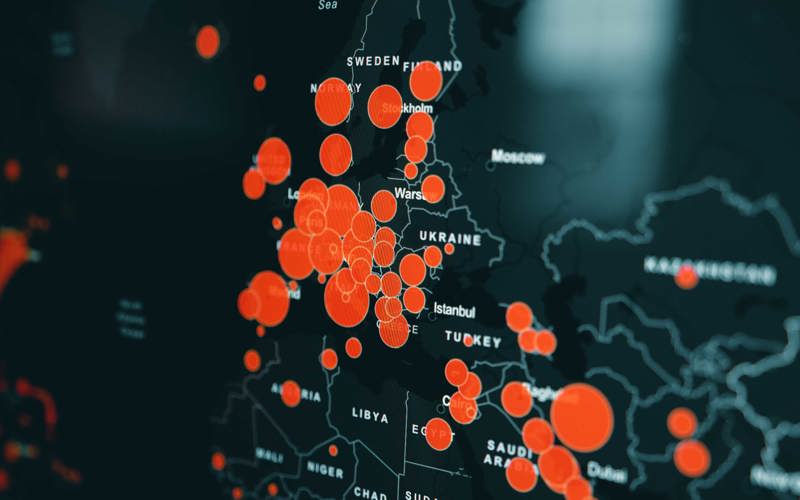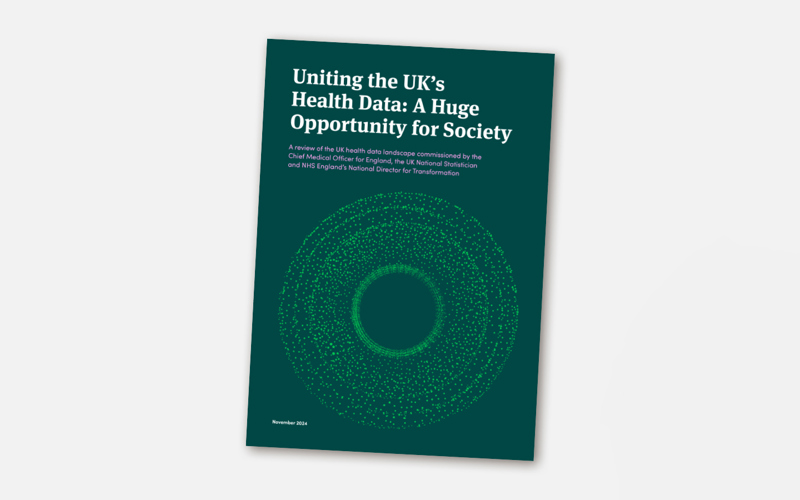Over the past few years, we have all seen the devastating impact pandemics can have. However, throughout the Covid-19 pandemic, we also witnessed remarkable innovation and development at pace in Scotland, from data dashboards to streamlined access to data for research, keeping the public informed and enabling policymakers to make well-founded decisions in a timely manner.
I have written previously about my experience as Chief Statistician during the Covid-19 pandemic, and it is now vital that we take the lessons we learnt from this period and implement and improve systems, processes and procedures to ensure we are better prepared for future pandemics.
To this end, the Scottish Government Standing Committee on Pandemic Preparedness was formed as a permanent advisory group. The group brings together scientists and technical experts from across Scotland to advise the Scottish Government on the future risks from pandemics and to ensure we are equipped as possible. The publication of their report, ‘Pandemic Ready: Safeguarding Our Future Through Preparedness’, is a major milestone towards pandemic preparedness, and I welcome its recommendations. These strongly align with Research Data Scotland’s (RDS) own mission of enabling faster, simpler access to public sector data for research in the public benefit.
Faster data access can save lives
RDS will play a key role in pandemic preparedness by further enhancing data access systems and approval processes, which is a key factor driving the development of our Researcher Access Service.
Researchers need quick and secure access to good quality data so that they can generate insights that improve public policy and decision-making. Timely access to data is even more vital during a pandemic, which can see rapid changes that require swift responses to save lives.
While we’ve started turning the key to unlock data, lots of valuable datasets are tucked away in many different organisations, and not in a format that makes access or integration easy. Indeed, the report highlights that in one Covid-19 pandemic study, researchers had to wait up to 18 months to be granted access to data, with up to 27 separate approvals required from organisations across Scotland. In some areas, this type of situation hasn’t changed yet.
The impact of this delay cannot be overstated. Barriers to research like this - whether in a pandemic or not - will cost time, money and lives.
By streamlining and simplifying data access processes through innovations like the Researcher Access Service, RDS is helping to generate faster, more timely insights, and enable decision-makers to base policies on good quality research built on good quality data.
Keeping people’s data secure
There are a number of opportunities to improve Scotland’s data for research systems, and RDS has a leading role in this area. We recently published a report into an aligned and efficient data access approvals system, which seeks to streamline the ways accredited researchers are granted access to data. This includes improved data discovery tools, streamlined application procedures, and rapid access to data in Trusted Research Environments (TREs) once access has been approved.
Of course, timely insights should never come at the expense of a loss of privacy for the public, or compromises to the security of their data. It's vital that we maintain public trust and involvement in Scotland’s data systems – it’s the public’s data, and we have a responsibility to ensure it is used safely and securely. As we prepare for future pandemics, we must continue to embed principles such as the Five Safes framework into our work, and maintain public involvement and engagement through our Scotland Talks Data public panel, Public Engagement Fund, and other activities.
Collaboration is key
We can’t and won’t make these improvements alone.
Collaboration is vital to everything we do at RDS, and I was pleased to see this acknowledged in the report, which proposes the creation of a Scottish Pandemic Sciences Partnership to connect government policy, national public health and the scientific community, and to build and maintain connections with UK and International networks, including the UK Pandemic Sciences Network.
I’m proud to see RDS listed as a key organisation in this partnership, with a leading role in enabling streamlined access to data for research. Only by working together can we ensure we are as prepared as possible against future pandemics in Scotland and the UK.
This work isn’t easy. But if it was, it would have been done already. We look forward to working with others to implement the recommendations in the report.



